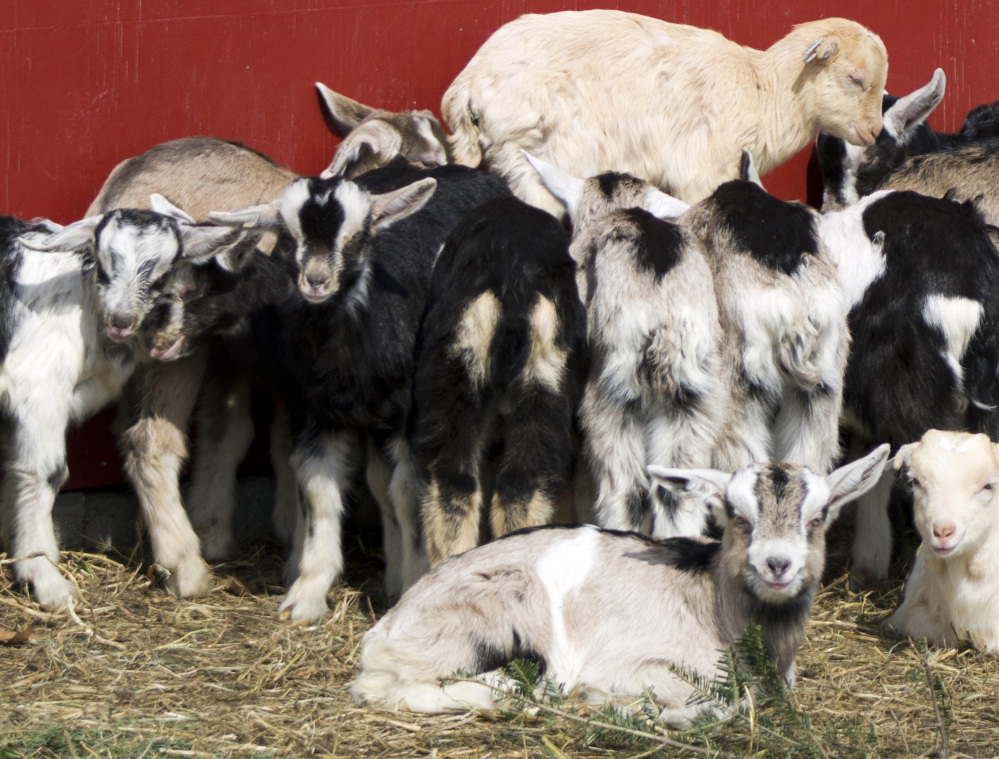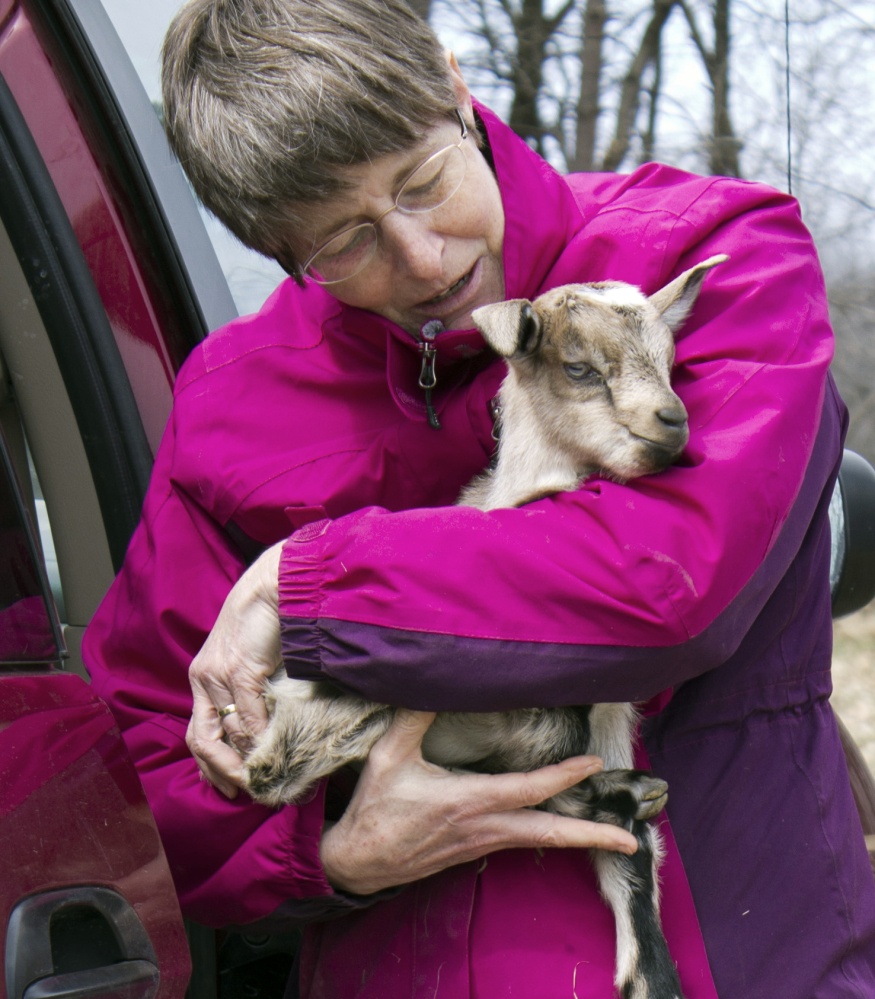COLCHESTER, Vt. — A bunch of kids in a minivan are solving twin challenges in northern Vermont: refugees struggling to find the food of their homelands and farmers looking to offload unwanted livestock.
The half-dozen kids – that is, baby goats – that arrived last week at Pine Island Farm were the latest additions to the Vermont Goat Collaborative, a project that brings together new Americans hungry for goat meat with dairy goat farmers who have no need for young male animals. Some dairy farmers who otherwise would discard bucklings at birth or spend valuable time finding homes for them now can send them to Colchester, where they will be raised and sold to refugees, some of whom have spent full days traveling to Boston or New Hampshire for fresh goat, or have settled for imported frozen meat.
SEEING AN OPPORTUNITY
When community organizer Karen Freudenberger realized that the roughly 6,000 new Americans from Southeast Asia, Africa and elsewhere living in the Burlington area were buying what amounted to 3,000 goats a year from Australia and New Zealand, she saw an opportunity. Since some of them had been farmers raising goats in their native countries, why couldn’t they do it in Vermont, prized for its working landscape and locally raised foods?
“People keep saying, are you sure you can sell all those goats? We are sure we can sell all those goats,” said Freudenberger, who helped launch the project.
Now in its second year, the collaborative includes two families from Bhutan and Rwanda who are raising about 200 baby goats that will be slaughtered on site and sold in the fall.
While there are no federal statistics on goat meat consumption, the USDA says demand for it is increasing, driven in part by a growth in ethnic populations. The U.S. had 2.3 million head of meat goats in January 2013, according to the National Agricultural Statistics Service, with Texas producing the most, followed by Tennessee.
Some of the refugees Freudenberger has worked with had trouble communicating with farmers when trying to buy fresh goat meat, while others were questioned by authorities for slaughtering an animal by the side of the road or for having a goat in a car. They are looking forward to being able to select, buy and slaughter their goats in a matter of hours instead of making the long, expensive trip to Boston, said goat farmer Chuda Dhaurali.
“It’s very helpful,” he said. “They are so excited.”
“The whole project is really designed around trying to meet this particular niche demand that this community has … in a way that meets the particular cultural and taste desires of their communities,” Freudenberger said.
The project is a collaboration between the Vermont Land Trust, which is giving the farmers access to the farm property on the Winooski River, and the Association of Africans Living in Vermont, now called AALV. The idea is that the land will be transferred to a cooperative entity representing the new American population and that group will take over the costs of the land – such as the insurance and taxes, Freudenberger said.
GRANTS HELP STARTUP
A grant of about $20,000 from Green Mountain Coffee Roasters helped to get Dhaurali started last year with electric fencing, feed and other supplies. Another Vermont Working Lands grant of more than $10,000 helped create the custom slaughter facility. The project subsidizes the farmer for the first year, but when they sell the goats in the fall, it allows them to finance future years.
Last year, the project sold about 100 goats to families from more than 15 nationalities. Buyers can slaughter the animals on site the way they are accustomed to.
The project is designed to be a model for other farms.
Copy the Story LinkSend questions/comments to the editors.




Success. Please wait for the page to reload. If the page does not reload within 5 seconds, please refresh the page.
Enter your email and password to access comments.
Hi, to comment on stories you must . This profile is in addition to your subscription and website login.
Already have a commenting profile? .
Invalid username/password.
Please check your email to confirm and complete your registration.
Only subscribers are eligible to post comments. Please subscribe or login first for digital access. Here’s why.
Use the form below to reset your password. When you've submitted your account email, we will send an email with a reset code.